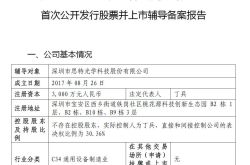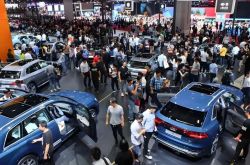The European new energy vehicle supply chain, rotting from the roots
![]() 12/02 2024
12/02 2024
![]() 469
469

Introduction
Introduction
This is also a failure for all European automakers and even the European manufacturing industry.
'Europe has fallen far behind China in the competition for the electric vehicle supply chain.'
Emma Nehrenheim, Vice President of Environmental Protection/Sustainable Development at Northvolt, commented in an interview with the British media Financial Times in September 2022. She then emphasized, 'Whoever controls processing capabilities will be able to further control material sources and conduct transactions.'
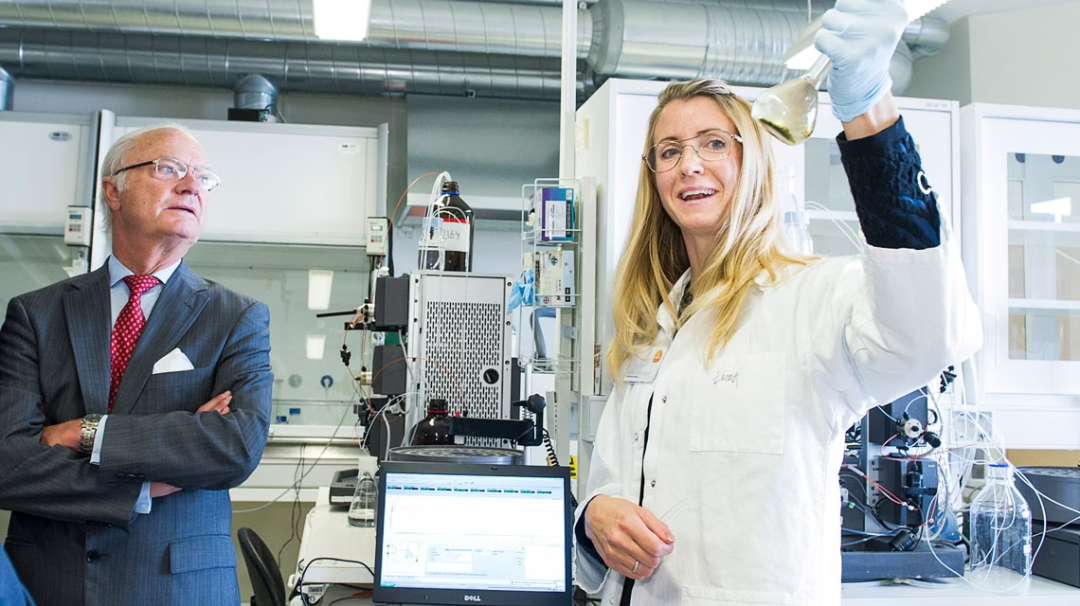
Photo | Before joining Northvolt, Emma Nehrenheim served as a professor of environmental engineering at Mälardalen University in Sweden. Hiring her as an executive was an important part of the company's efforts to establish a fully eco-friendly image.
The related report was published on the Financial Times website on the 20th of that month. In addition to Northvolt, which has recently become quite famous in China, the author also interviewed Francis Wedin, CEO of Vulcan Energy, and Roland Gertrud, CEO of Livista Energy, headquartered in Luxembourg.
Their quotes were, respectively, '(Our company) has a long way to catch up; China is currently ahead by several steps' and 'European supply chain companies need to prepare for the surge in demand for electric vehicles and be ready to compete with (Chinese) competitors who are 20 years ahead of us and already profitable.'
To put it bluntly, these statements, along with Ms. Nehrenheim's earlier comment, are all standard, 100% correct nonsense. However, their uniqueness lies in the fact that, in addition to being important supply chain companies in the new energy industry, all three carry a shining green emission halo.
Vulcan Energy's hallmark is 'zero-carbon lithium,' which involves extracting lithium from salt lakes and ocean waters using methods that do not generate additional carbon emissions. Livista Energy, as a downstream company of Vulcan Energy, is involved in the refining of lithium raw materials, with 'fully traceable carbon footprint' as its core selling point.
As for Northvolt, which has recently gained fame on the Chinese internet, as everyone knows, its main business is the production of power battery cells, with some production of battery packs as well, but cells are the primary product. Of course, the theme of environmental protection is also its core selling point - the production mainly uses renewable energy, and the entire process is fully controllable.
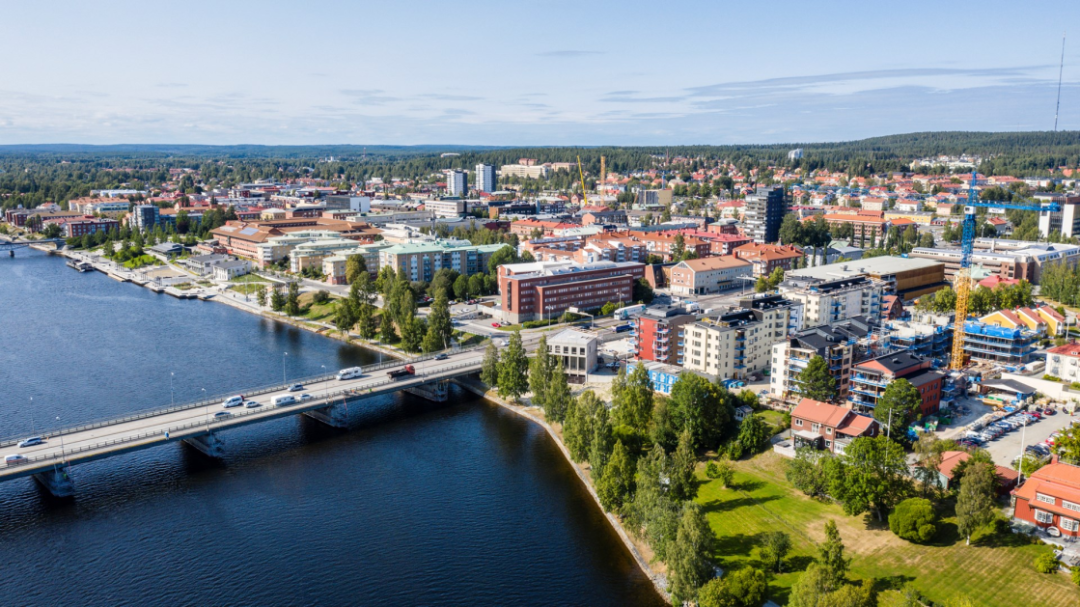
Photo | Skellefteå, with a population of over 30,000 in the urban area, is located by the Baltic Sea and is an important destination for the Baltic Sea Arctic Circle tourism project. The local scenery is picturesque, but most Chinese people would feel uncomfortable living there long-term.
Even to highlight its green label, this power battery manufacturer has even set up its production base in the picturesque city of Skellefteå, Sweden, which has a population of only over 70,000.
Undoubtedly, the interviewees were carefully selected. They covered the entire process from lithium mining and lithium refining to cell production, all with a green glow, emphasizing complete harmony with nature. Although the interviewees all used formulaic language to express difficulties, their constant mention of 'China' seemed to indicate that Europe was about to catch up with its eastern rivals in the new energy race based on its own values?
However, after Northvolt's bankruptcy and reorganization, more than two years later, everyone already knows the outcome.
HOW DARE YOU!
According to Directive 2003/87/EC of the European Union, the Emissions Trading System (EU ETS) was officially launched on January 1, 2005, marking the dawn of the carbon economy era.
Unlike the environmental protection concepts of the last century, the concept of carbon emissions aims to combat large-scale global climate change and reduce the impact of human activities on the Earth's ecosystem. Since its inception, it has borne the global responsibility for the future, claiming to take responsibility for all mankind and future generations.
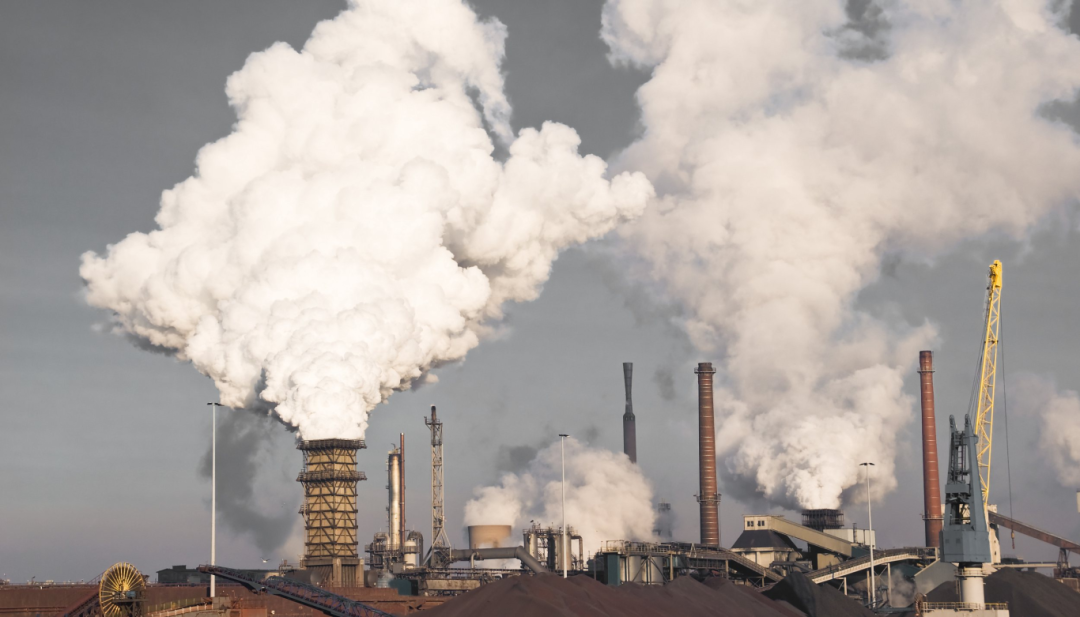
Photo | Regardless of whether carbon emissions are a conspiracy concocted by Europe to restrict developing countries, at least low carbon emissions and non-fossil fuels can ensure that human activities reduce their impact on the Earth's environment while leaving more precious resources for future generations. As the saying goes, 'Lucid waters and lush mountains are invaluable assets.'
The related concepts and theoretical foundations are still controversial. There are accusations against European countries that were the first to promote this concept, with many insisting that it is a scheme devised by established developed countries to maintain their advantages in global competition and ensure European countries' dominance in industries including the automotive industry.
Here, we will not discuss whether climate issues themselves contain political motives, as that would inevitably deviate from the topic. Instead, we will only discuss the transformation to new energy itself and the issues in the European new energy vehicle industry chain.
Based on existing historical experience, promoting a fundamental change in society's energy model is a costly and lengthy project with a long cycle. Regardless of the enormous benefits it may ultimately bring, one must endure high initial investments and relatively low returns. In other words, under modern capital logic, it is almost impossible for anyone to take the initiative unless a grand narrative is used to convince the entire society of its transcendent value.
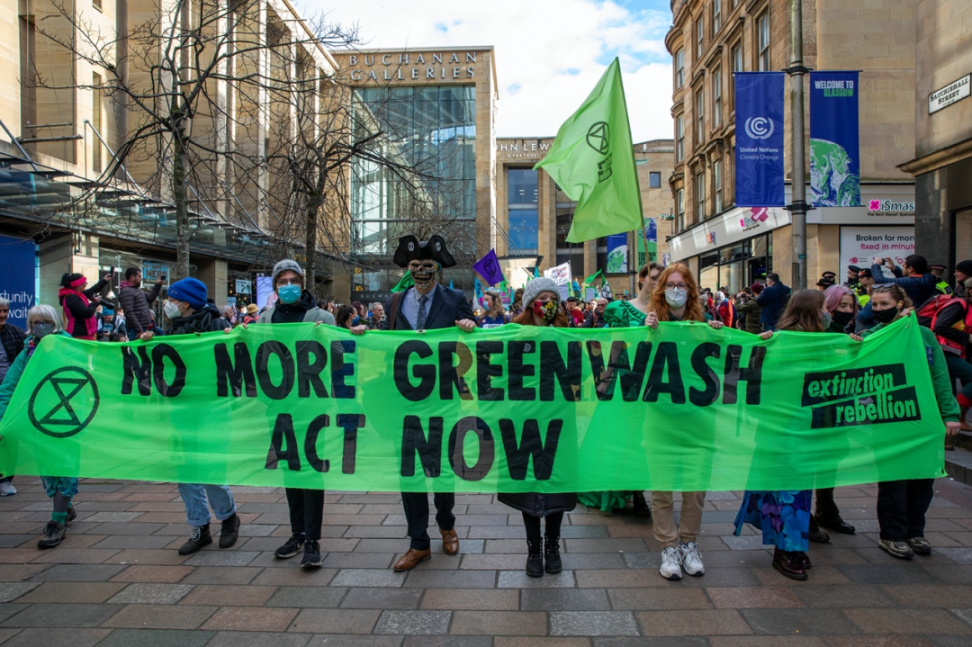
Photo | Compared to the performative arts of European and American citizens on carbon emissions, the Chinese people have adhered to the traditional pragmatic style of work.

Of course, the promotion process... naturally cannot be separated from the 'influencer' incubation model that fits the characteristics of the new generation. So everyone soon saw the subsequent scene:
On December 12, 2018, the 24th United Nations Climate Change Conference invited a special guest, Greta Thunberg, who was born in Sweden and was only 15 years old at the time.
During her speech, Greta criticized the inaction of global governments on environmental issues and lambasted the delegates for 'gathering here to make rules to implement the 2015 Paris Agreement' but 'abandoning future generations.'
In her passionate speech, she even left this 'classic quote' and corresponding meme for the global internet subculture - HOW DARE YOU!

Constructing a grand narrative and instilling its transcendent value in the public. Through a series of constant marketing performances by influencers, while constantly brainwashing the audience with the original sin of modern life, it also points out through other channels of promotion the method to 'atone' for this sin by switching to various new energy products.
When the concept of 'environmental protection' once again became the forefront of the trend of the times, and the core idea of this wave revolved around carbon emissions. Even though 'President Trump' announced the United States' withdrawal from the Kyoto Protocol in June 2017, the economic and business concepts centered on carbon trading in the European and American capital circles remained the focus of capital attention. This also became the core of the new round of the European new energy industry.
At that time, Tesla had obviously taken the lead in new energy vehicles, which had the most potential for commercial closed loops. As for Chinese followers such as NIO, XPeng, and Li Auto, they also launched their first-generation products within a year from the end of 2017 to the end of 2018.
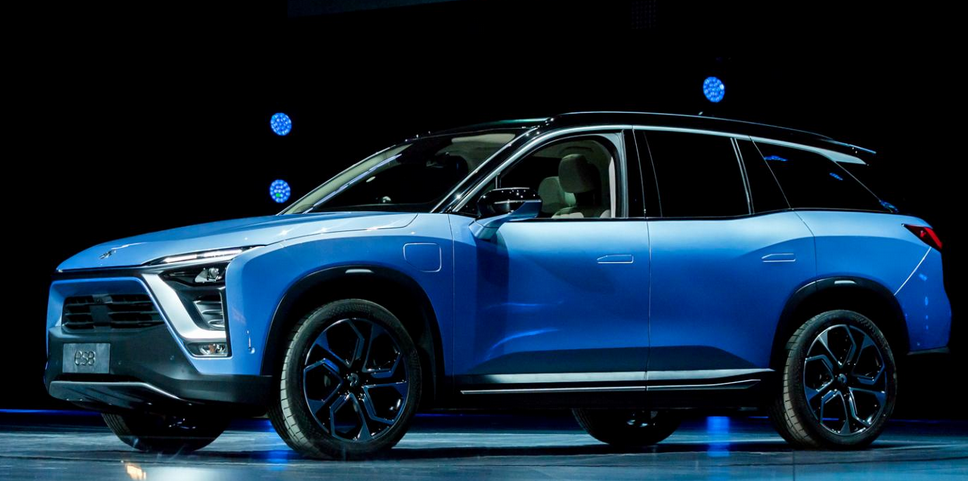
Photo | Unbeknownst to many, this was already seven years ago.
European companies, while not entirely devoid of achievements in this area - for example, BMW once had the i3 model with decent sales - on the whole, they did not have products comparable to the aforementioned companies.
In terms of the upstream supply chain, by 2018, Chinese companies had become very well-established with nine years of continuous policy support. As for the United States, although Boston-Power, which had the largest production capacity at the time, only deployed its capacity in China, Tesla's Gigafactory could still ensure a considerable proportion of self-sufficiency in power battery supply and continuously updated its power battery products based on new concepts and technologies.
In a comparison between the three parties, Europe's position in the upstream supply chain system for new energy vehicles was such that motors and electronic controls might still be self-sufficient, and there might be hope for catching up if OEMs collaborated with IT companies in smart cabins and autonomous driving. However, the power battery segment was a glaring gap.
Overly successful marketing
Before joining Tesla, Peter Carlsson served as Chief Production Officer (CPO) at NXP Semiconductors, responsible for procurement and outsourcing projects. According to his resume, his main achievement at NXP was effectively organizing the decentralized procurement system and building a reliable global procurement system for the company. Earlier, he worked for Sony Ericsson Mobile Communications, also as CPO.
Given his area of expertise, during his tenure at Tesla, he continued to hold a senior position in global procurement and supply chain management. He was even the one who received Lei Jun during his first visit to Tesla in 2013.
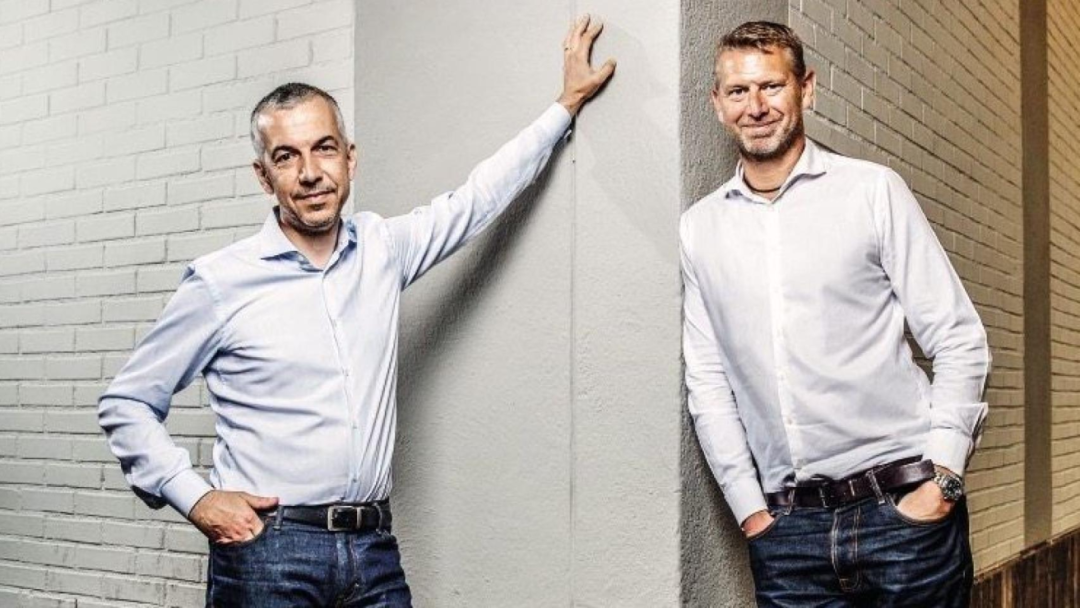
Photo | Peter Carlsson (right) and his Tesla colleague Paolo Cerruti, co-founders of Northvolt
After 2016, Peter recruited his Tesla colleague Paolo Cerruti and together they left to found SGF Energy in Stockholm, Sweden. According to available news reports at the time, the company was established with high ambitions, aiming to 'produce the most environmentally friendly batteries on Earth and compete with China and the United States.'
In May 2018, Northvolt received an investment of up to 10 million euros. The investor was none other than the renowned Siemens. In the same year, perhaps to reflect the company's Nordic location and new energy identity, the company was renamed Northvolt.
With the 'HOW DARE YOU' outcry at the end of 2018 and changes in the political environment, European and global capital began to pay close attention to power battery production outside traditional investment areas in East Asia. Northvolt, almost the sole representative of Europe, immediately became the brightest capital darling under the spotlight.
Throughout 2019, Northvolt received a total of three investments. In addition to the A round of 11.931 million euros at the beginning of the year, it received consecutive corporate and debt financing in June. The former was on a large scale of 600 million dollars, funded by Volkswagen; the latter was 400 million dollars, funded by the European Investment Bank.
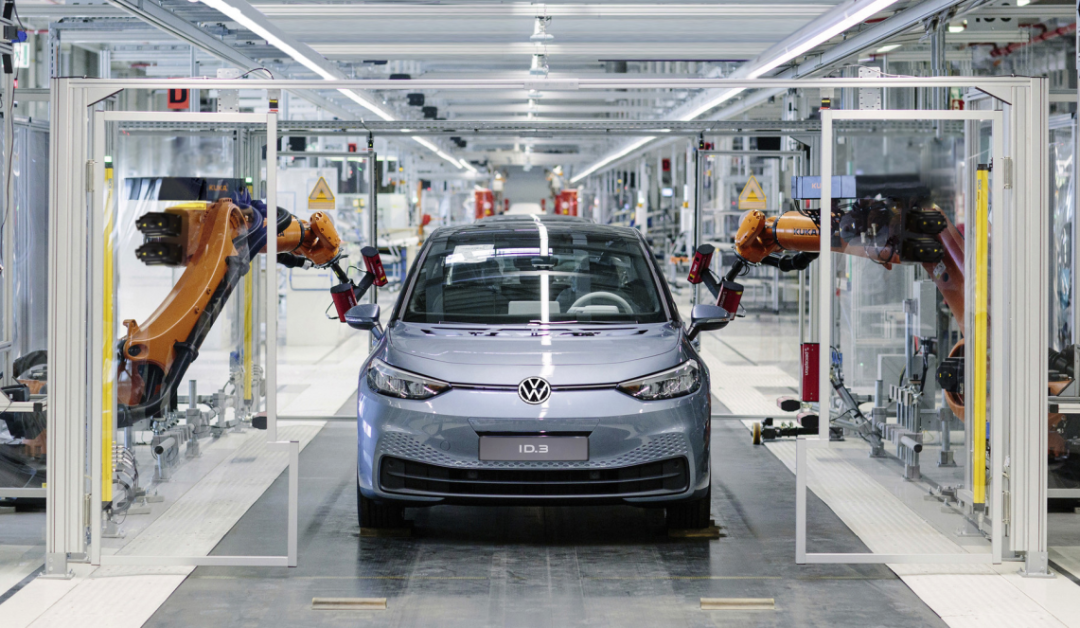
Photo | Volkswagen's preference for Northvolt is reasonable; it eagerly hopes that local European companies can mass-produce power batteries, thereby reducing their supply chain costs and improving security by shortening the supply chain.
Volkswagen invested at least billions of dollars in Northvolt at least three more times over the next two years, becoming the company's largest investor and thereby acquiring a stake of close to 21%.
By the end of 2023, Northvolt had publicly disclosed a total of 13 funding rounds, with a total disclosed amount of 8.95 billion dollars and approximately 1.022 billion euros. The funding intensity in the power battery sector can be described as unprecedented.
With funding becoming increasingly abundant, Northvolt also seemed to plan to fulfill its promises. In mid-2019, construction of the Northvolt Ett battery factory in Skellefteå, northern Sweden, officially began. It is worth noting that 'Ett' means the number one in Swedish. Considering that one leads to two, this also seemed to represent the company's 'ambition.'
The planned annual capacity for the first phase was 16GWh. With the official start of the project, almost all European automakers rushed to sign letters of intent with Northvolt. According to various public news reports, by the beginning of 2020, Northvolt had received a total of 150GWh in letters of intent, equivalent to 13 billion dollars, which would take at least nine years to deliver based on its designed capacity. Subsequently, the 'pie' for capacity was enlarged further, requiring an annual capacity of 32GWh by the end of 2023...

Figure|Ett plant of Northvolt, founded in 2019
Skellefteå is only 200 kilometers away from the Arctic Circle, making it quite close. This location is a popular destination for Arctic tourism along the Baltic Sea in Northern Europe. Due to its proximity to the Arctic Circle, more than half of the year here experiences abnormal day-night cycles that are unacceptable to people living in low latitudes.
The direct reason for choosing this location to set up the plant is said to be based on the Swedish government's tax incentive policy. Of course, this small city itself is also an example of Sweden's attempt to establish a new energy model city, so it is logical to gather related industries in one place.
In reality, Northvolt's overall development can be considered extremely successful - it made early preparations, then took off with the wind, and was seen as a hope by most of Europe and its customers. It received investments worth billions of dollars and had orders for the next nine years even before the plant started construction...
But what about after that? This is actually a company without technology. That is to say, it knows how to write plans, is good at marketing, and knows how to please investors, but it is a blank slate when it comes to actual product production and manufacturing. So when the project officially starts, that's when the real problems begin.
The tragedy of capitalism
Both founders of Northvolt are seasoned supply chain experts. This also means they are exceptionally familiar with project outsourcing.
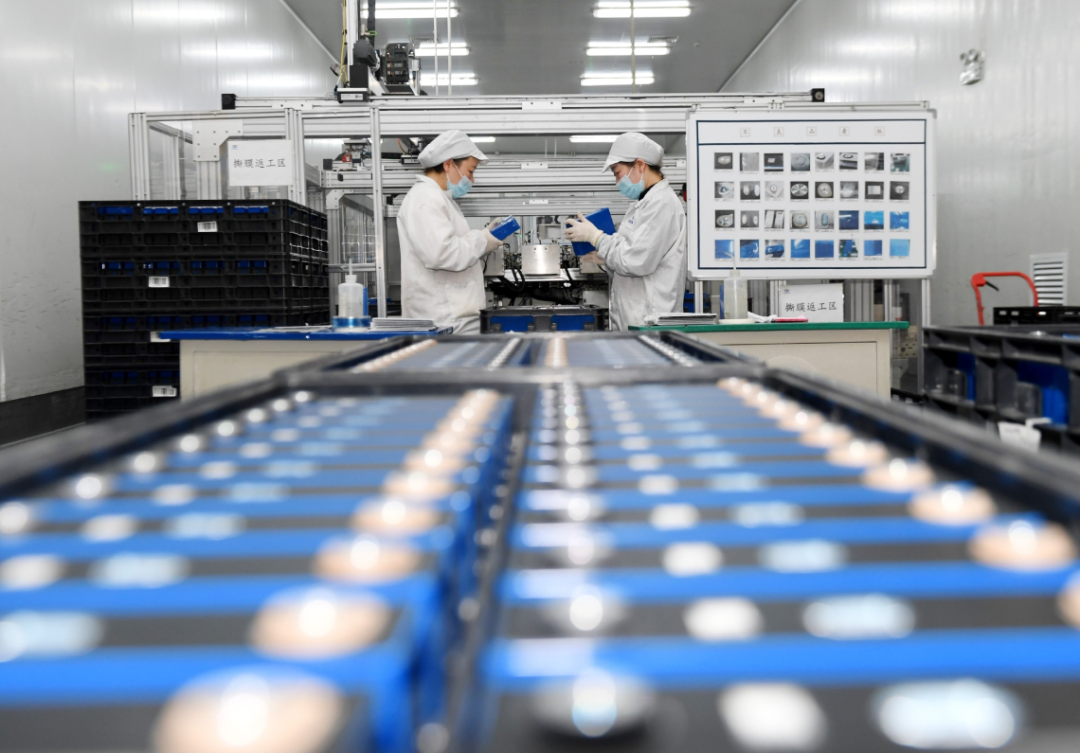
Figure|Without exaggeration, Northvolt, which has no technology or manufacturing expertise, was able to build its plant and start production thanks to the hands-on teaching of its Chinese partners. In fact, in recent years, almost all newly commissioned new energy vehicle and power battery enterprises worldwide have had the involvement of Chinese companies behind them.
On the evening of January 29, 2019, Leading Intelligent Machinery Co., Ltd., a listed company headquartered in Wuxi, Jiangsu, announced that it had recently signed a "General Terms and Framework Agreement for Equipment Design, Production, Installation, and Commissioning" for lithium battery production equipment with Northvolt. Both parties also established a cooperative relationship in the lithium battery production equipment business, with plans for approximately 1.939 billion yuan (RMB) in business cooperation in the future.
Considering the time required for negotiation and contact, the two parties should have been in contact no later than the end of 2018. Obviously, the two founders, Peter and Paul, had plans in place long before that. On October 29 of that year, Leading Intelligent Machinery announced again, "To further expand overseas markets and meet the strategic development needs of the company, the company plans to invest and establish a wholly-owned subsidiary in Sweden with its own funds."
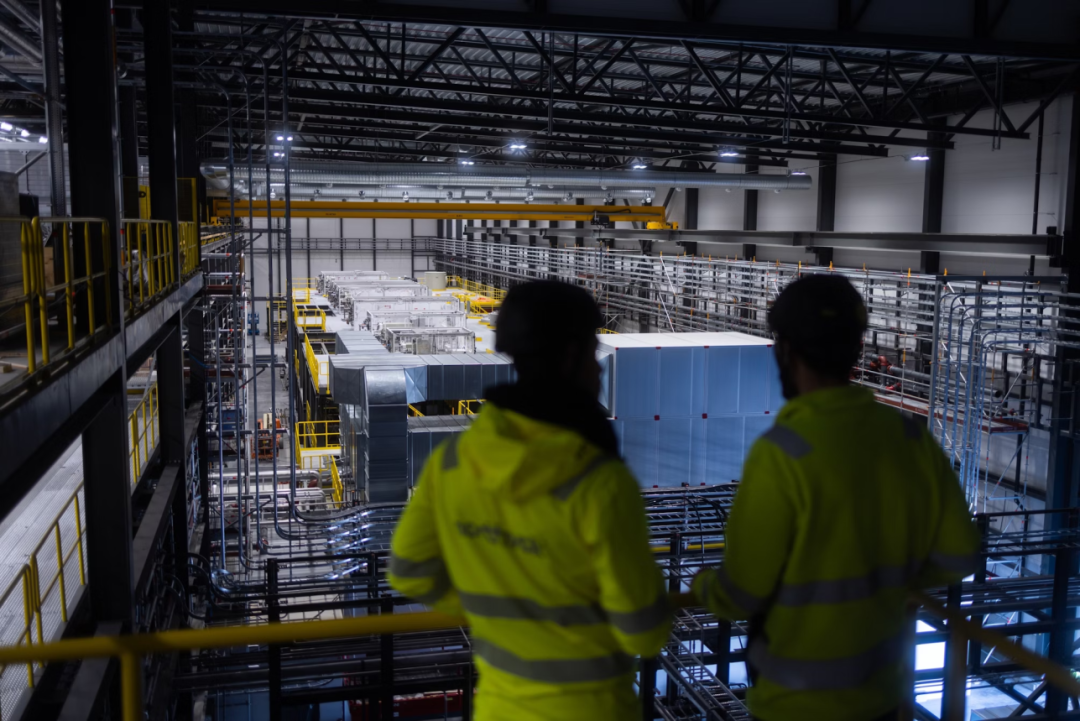
Figure|The figure of Chinese construction workers inside the Ett plant of Northvolt
These two announcements reveal how Northvolt ensures the implementation of its business. Moreover, just bringing in equipment and technology from China is not enough; this important partner must also be responsible for establishing a company in Sweden to quickly and locally address after-sales service issues and possibly even human resources problems.
Of course, a European unicorn enterprise of this size will not have only one partner. Several known domestic partners also exist, such as Shenzhen Star Source Material Technology Co., Ltd., which supplies separator materials, as well as related service providers and suppliers of power batteries from South Korea.
Affected by the global COVID-19 pandemic, the Ett plant was inevitably delayed and was not completed and commissioned until 2021. Then, near the end of that year, it announced news that Exciting almost the entire European automotive industry at the time - production officially started, and the first battery cell had been produced.
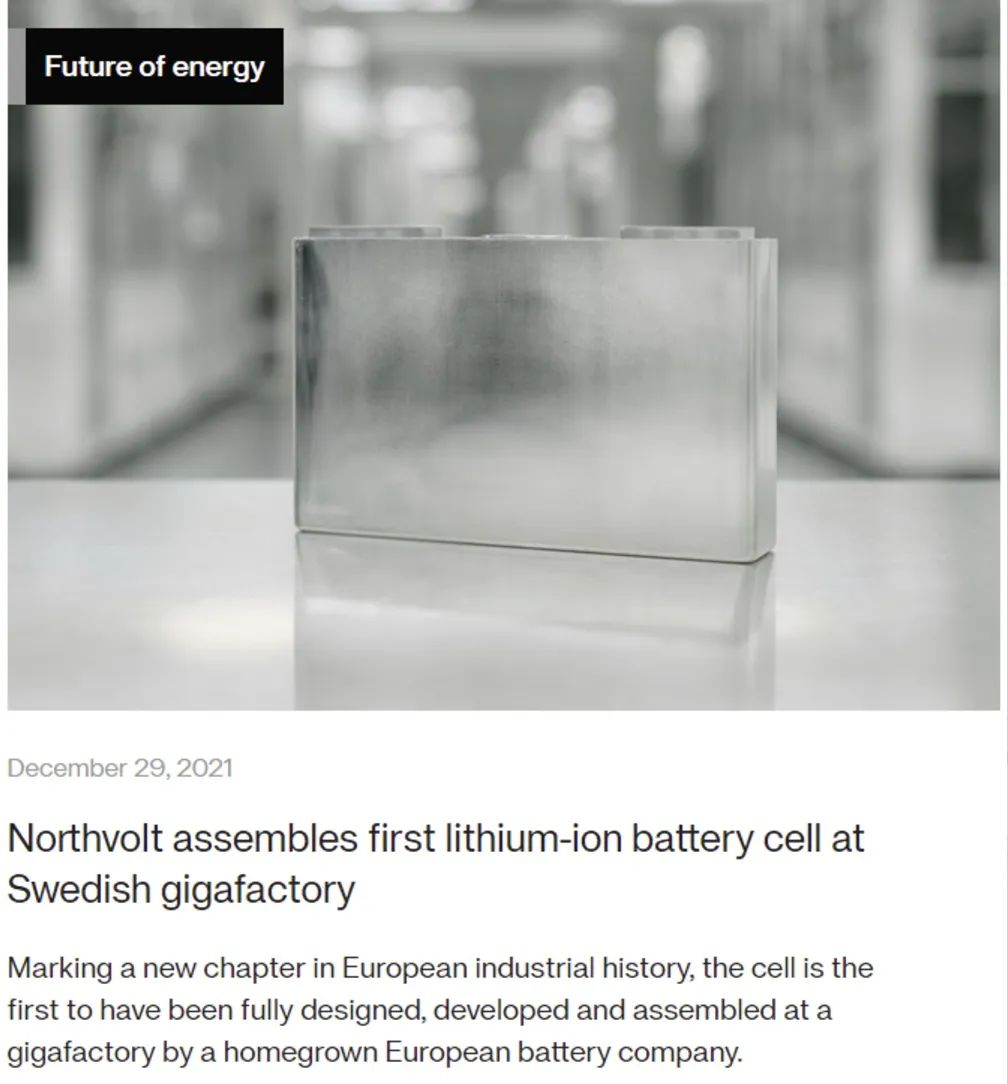
Figure|Screenshot of news report at that time
This seemed to indicate that a multi-year marathon had reached its end. In the future, Northvolt would gradually increase production capacity and gradually deliver orders that could take years to complete. Simply put, is it just a matter of waiting to count the money?
This is a big mistake. As a Chinese person, anyone reading this article should avoid projecting their own views onto others. Because subsequent facts have proven that this is a "shoddy team." The fact that the Ett plant was able to complete and even enter the production stage is entirely due to the Chinese service provider's best efforts to maintain it.
The locally recruited workers have never been qualified, and many even exhibit all the characteristics of being "uneducated and incompetent" in all aspects. Even workers in China who have not completed nine years of compulsory education, after receiving the necessary training and discipline, would not behave so outrageously.
Not long ago, an informed source revealed online that Northvolt not only lacks technology but also has chaotic internal management. Not only is it chaotic, but it is also blindly expanding. For example, after nearly three years of struggle to finally produce the first battery cell, Northvolt's shareholders planned to expand their scale just three months later. They set their sights on a shuttered paper mill in Sweden, announcing plans to transform it into a facility for producing cathode active materials and other battery components, and possibly even adding new battery production capacity when necessary. It can be said that their blind faith in their own abilities has reached a considerable height.
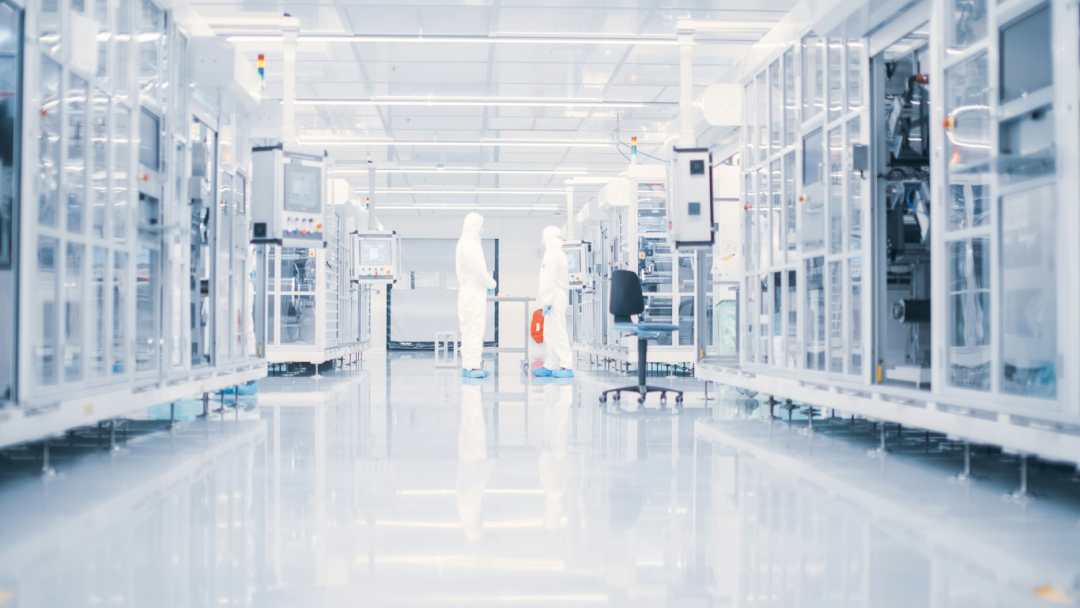
Figure|Factory promotional photo - Does it feel unusually clean? If it feels unusual, that's right...
Additionally, the informed source further revealed some speechless details in communication with netizens, such as the ignorance and wanton disregard for basic production management norms among the European workers employed at the Northvolt Ett plant -
The domestic parent company of its service enterprise supplied a batch of battery formation equipment to Northvolt from China. This is a core equipment in the production of power batteries, used to activate the active materials inside the battery and improve its charge-discharge performance through charging and discharging after the individual battery cell is completed. The battery cells produced and transported out by the logistics line are required to be placed in this equipment to complete the corresponding process.
One day, someone from the Ett plant called and scolded their supplier, claiming that a equipment failure had caused errors in the entire logistics line and demanded immediate action. The Swedish company responsible for after-sales service immediately dispatched a project manager, who rushed to Skellefteå with a team of technicians. However, upon arrival, they were puzzled to find a pile of clutter, including laptops, inside the formation equipment partition. It turned out that the system had identified these foreign objects, causing it to continuously report errors. For such a low-level issue, the local workers at Ett were actually worried about how to store their clutter in the future.
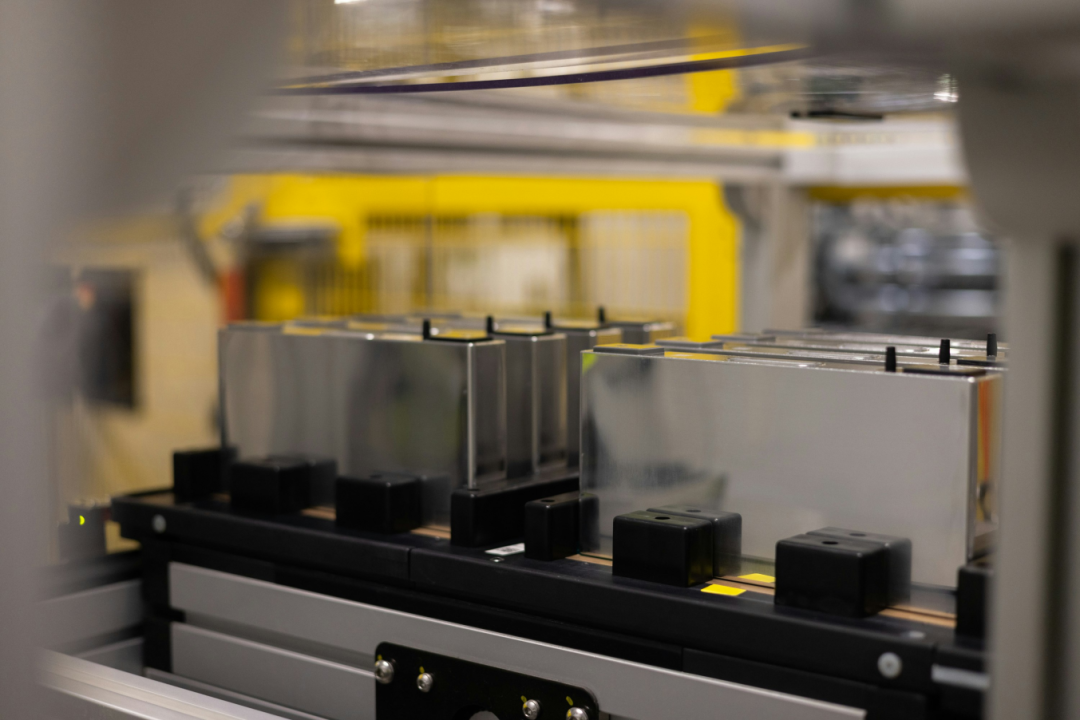
Figure|In reality, the Northvolt Ett plant has never been able to produce batches of qualified products in a stable and continuous manner like the power battery plants of China, South Korea, and Tesla in the United States. According to the answer given by CATL Chairman Zeng Yuqun in a program earlier this year to the host's question, "Why can't Europe make good batteries?" - Firstly, their design is wrong; secondly, their process is wrong; finally, their production is wrong. Moreover, even the delivered battery cells have defects in both process and quality, and problems are bound to arise within two or three years.
In fact, the two explosion accidents at the Ett plant in the second half of 2023 that resulted in casualties were also due to similarly low-level and ridiculous reasons.
One involved a worker using an ordinary vacuum cleaner to clean a dust collection box specifically designed to collect debris from the cutting of battery cell casings on the production line, resulting in a dust explosion. In another incident, the explosion occurred in a front-end oven used for drying coatings, as for some reason air had mixed into the equipment...
Even with such a motley crew, it has been difficult for the Ett plant to quickly reach its designed production capacity, even after introducing professionals from China and South Korea to oversee the site since 2022.
As of the end of 2021, Northvolt had received intent orders worth nearly $30 billion for power batteries. However, by the end of 2023, the battery cells delivered by the Ett plant only accounted for 0.5% of the total orders on hand.
Due to disappointment and other factors, BMW Group canceled a long-term contract for electric vehicle batteries worth 2 billion euros that it had signed with Northvolt four years earlier in June of this year. Under various pressures, Peter Carlsson was also forced to further delay the timeline for "full production" to after 2026. This essentially sentenced the company to death.
Northvolt's bankruptcy reorganization was undoubtedly devastating news for investors. Goldman Sachs lost at least $900 million, while Volkswagen's losses were even more severe. However, since the amount of funding raised on March 15, 2021, was not disclosed, the exact amount is unknown, but it is known to be much higher than Goldman Sachs' loss.

Figure|Factory promotional photo - Does it feel unusually clean? If it feels unusual, that's right...
Moreover, the more serious issue is that in the current context where Europe is comprehensively lagging behind China and the United States in the new energy sector, the only hope for European automakers to obtain local power battery supplies has been completely shattered. In the future, even if localized supply is expected, it can only rely on the production capacity set up in Europe by "foreigners" such as CATL and LG Chem.
By the way, we should not forget the other two companies mentioned at the beginning of this article, Vulcan Energy Resources and Riverstage Energy.
The most recent news about the former came on November 26, when the company's current CEO, Chris Morena, told the media that the company was in talks with multiple lithium companies to license its filtration technology, aiming to provide a new source of income for its renewable energy projects in Germany. The company's latest plan is to build a commercial facility in Landau, Rhineland-Palatinate, Germany. To achieve this plan, the company will raise 1.4 billion euros in funding, which is currently in the final stages of finalization. The new facility is expected to be commissioned in 2027.
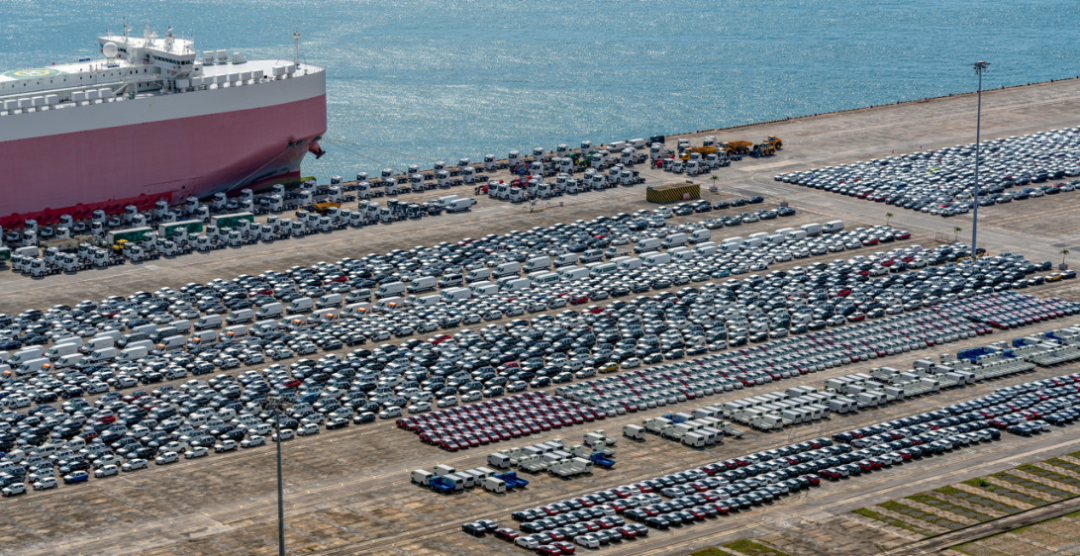
Figure|European new energy vehicles may only have hope in "reverse" joint ventures to save them from the roots - through joint ventures with Chinese automakers and power battery enterprises
As for Riverstage Energy, according to recent news on the company's official website, it has consecutively acquired land in Le Havre, France, and Emden, Lower Saxony, to build its lithium refining plants. Don't ask when the construction will actually begin or when refined lithium products will be available; the estimated time is 2026.
Let's continue with Northvolt. This company is actually very typical. Its rise almost gathered all the elements of the rise of unicorn companies in the American and European tech industry after the first decade of the new century. It is full of cool and fashionable elements, and even its production base is built in a famous tourist city in Northern Europe, shouldering the heavy responsibility entrusted by the grand narrative, so that it can make money while also making customers pay with the mindset of purchasing indulgences.
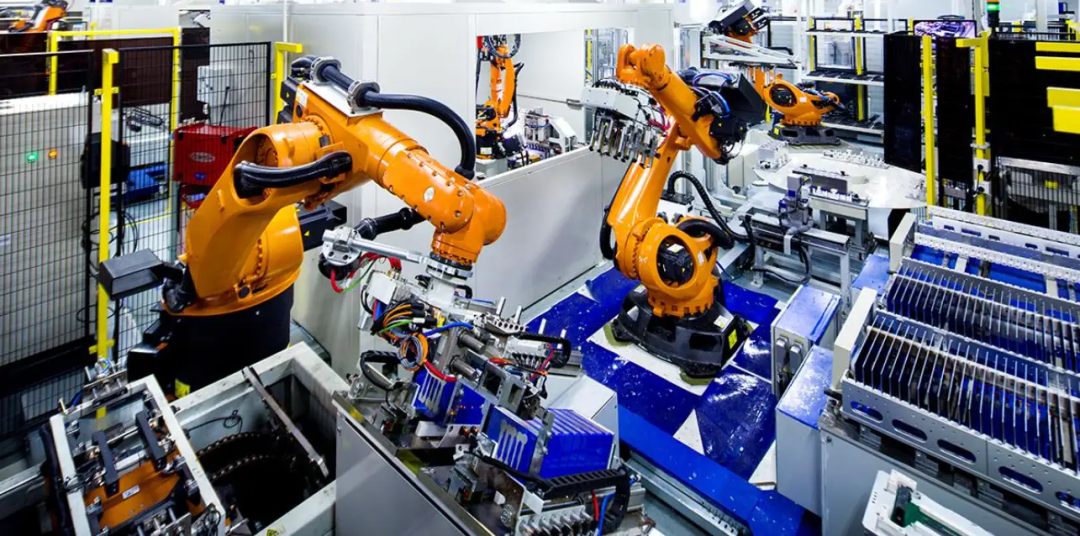
Figure|Perhaps as the birthplace of modern industrial civilization, today's Europeans have forgotten the essence of manufacturing, mistakenly believing that it can be solved by roadshows, PPT presentations, and drawing big pies to attract investment, and then selling sentiment or "selling indulgences" to the market. Even if it were possible, there still needs to be something that can actually be produced!
Throughout all its stages from establishment to the announcement of commencement of construction in 2019, it can almost be called a model of contemporary corporate financing. However, after successfully raising billions of dollars in funding and securing orders for future years even before the plant was built, like many rapidly rising and falling European and American peers in recent years, it has never been able to effectively solve the problem of production capacity and produce products that live up to the promises in its investment promotion PPTs.
There has been a lot of content introducing this company in the past week, and this article aims to provide a supplementary perspective. As for the author's viewpoint, it has actually already been given in the title of this article.
And in the end, the author just wants to make a special comment -

Figure|"Glorious" moments are fleeting; don't mistake a moment for eternity - Thinking back to the rampage of old European powers in the East in the latter half of the 19th century and then looking at the image of their descendants today, doesn't it make every Chinese person feel a sneer involuntarily emerging from the depths of their facial muscles?
Fortunately, there are companies that truly understand technology and manufacturing, preventing Northvolt from falling to the level of Theranos. As for the two founders, Peter Carlsson, they were able to resign from their positions amidst thanks from the board of directors, avoiding the fate of Elizabeth Holmes.
However, isn't the luck of these individuals and companies precisely the sorrow of old Europe?
Nevertheless, according to the convention of the past two years in simplified Chinese internet culture, there should be one last question here - So, does this mean the national football team of China can now defeat Sweden?
...


